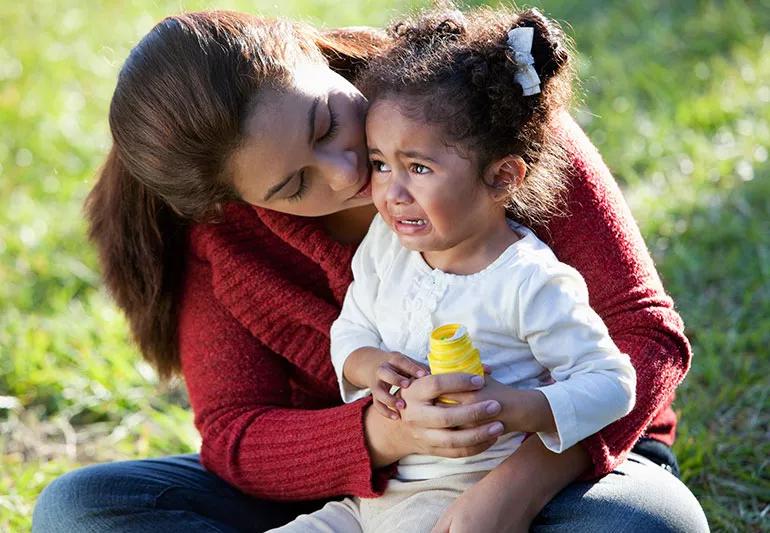Find out how to head off unruly behavior

Image content: This image is available to view online.
View image online (https://assets.clevelandclinic.org/transform/7818beba-c5d6-4f6f-8e03-59fcd66661ad/TerribleTwos-523244696-770x533-1_jpg)
mother consoling crying two year old
Does this sound familiar? Your cute-as-a-button 2-year-old asks for candy in the check-out line at the grocery store. You say no. What happens next is the stuff of parent nightmares: Your child melts into a screaming, crying heap right before your eyes — capturing the interest of ALL of your fellow shoppers.
Advertisement
Cleveland Clinic is a non-profit academic medical center. Advertising on our site helps support our mission. We do not endorse non-Cleveland Clinic products or services. Policy
Ah, the “terrible twos.” While the phase won’t last forever, it sometimes can feel like it will never end. In the meantime, it’s a good idea to have some strategies for handling your toddler’s unruly behavior.
For every child who seems to skip the meltdown stage altogether, there’s another whose terrible two phase seems to last for years. “While most children fall somewhere between those extremes, it is very common for children to go through a phase of unruly behavior somewhere between the ages of 18 months and 4,” says pediatrician Mary Wong, MD.
“The toddler years are a time of rapid growth — physically, mentally and socially,” she says.
During this time, most toddlers develop their sense of self and start to want to do things independently.
“When a toddler’s desire to do something doesn’t align with their ability, frustration is often the result,” Dr. Wong says. “To further compound things, toddlers typically don’t have the language skills to ask for help if things don’t go smoothly.”
This gap between desire and ability can cause frustration, unruly behavior (like biting other children) and tantrums.
“While there is no quick fix for undesirable toddler behavior, you can take steps to help things go more smoothly when the terrible twos emerge,” Dr. Wong says.
Advertisement
When misbehavior strikes, it’s helpful to remind yourself that you aren’t alone.
Rest assured, “Your child won’t still be going through this phase when they go off to college,” Dr. Wong says.
Advertisement

Sign up for our Health Essentials emails for expert guidance on nutrition, fitness, sleep, skin care and more.
Learn more about our editorial process.
Advertisement
Teething and frustration can make the ‘terrible 2s’ an unfortunate reality
Some tips for mastering these key parenting skills
Find out how to head off unruly behavior
Bleeding is a risk and warrants taking care, but the reward of this lifesaving medication is great
Severe and debilitating headaches can affect the quality of your child’s life
Type 2 diabetes isn’t inevitable with these dietary changes
Applying a hot or cold compress can help with pain
Pump up your iron intake with foods like tuna, tofu and turkey